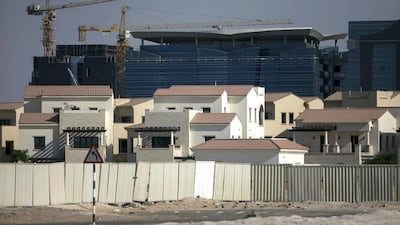The IMF has revised its forecast for UAE economic growth for the second time in little more than two months, trimming slightly its outlook for the year to 4.4 per cent.
It upgraded its estimate for growth last year to 4.8 per cent. The fund in late January lifted its forecast for both last year and this year to 4.5 per cent.
"In the UAE, where real estate prices are rising at a fast pace, the award of World Expo 2020 has further strengthened growth prospects," wrote the fund in its latest World Economic Outlook, released yesterday.
While the reason for the latest revision is not outlined in the report, the fund previously cited the extent of the property market rebound and the strength within trade, transport and tourism for its earlier upgrade.
Within the GCC, the IMF’s UAE GDP forecast for this year is second in strength only to Qatar, where growth will reach 5.9 per cent.
It forecast inflation in the UAE to ramp up to 2.2 per cent this year, compared to 1.1 per cent last year. A rise in rents by up to 60 per cent in Dubai last year and smaller rises in the capital have triggered an uptick in inflationary pressures.
Despite the unwinding of fiscal stimulus after the Arab Spring and the 2009 financial crisis, the report warned that falling oil revenues were causing fiscal surpluses among regional oil exporters to decline to 2.6 per cent this year. Lower oil revenues were also expected to drag down large current account surpluses. But it added that most of the GCC had substantial buffers to withstand large shocks to oil prices, provided they were short-lived.
Growth among regional oil importers would remain flat at 2.7 per cent this year, the same as last year, it forecast.
“Despite supportive fiscal and monetary policies, growth has hovered around 3 per cent since 2011 – half the rate needed to reduce the region’s high and persistent unemployment and improve living standards,” the report said.
Inflation among those countries would rise slightly to 8.5 per cent, with upward pressure from the phasing out of energy subsidies offset by waning global commodity prices, the IMF said.
The fund called the downgrade of growth rates in large emerging market economies such as Brazil, Russia, South Africa and Turkey a “worrying development”. It blamed domestic policy weakness, tighter domestic and external financial conditions, or investment and supply constraints for the tepid outlook.
In advanced economies, the IMF forecast expansion of 2.2 per cent this year, up from 1.3 per cent last year, spurred by monetary policy, reduced fiscal drag and improving financial conditions in the US and Europe.
tarnold@thenational.ae
Follow us on Twitter @Ind_Insights

